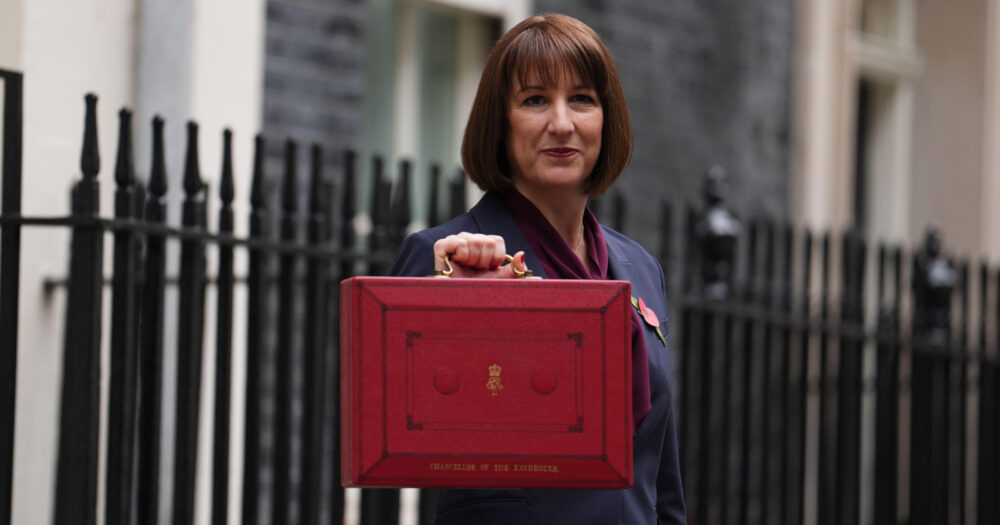

Unlock Exclusive Market Insights
Sign up for access to Century Capital's latest market analyses, expert commentary, and financing solutions tailored to meet borrowers needs. Be the first to hear about our latest products.
Leading London property figures remain optimistic despite Labour’s impending tax hikes
Despite Keir Starmer warning the UK public of tough times ahead, and suggesting that some parts of the government’s upcoming Autumn Budget (Oct 30th) will be ‘painful’ for many to hear, the leaders of London’s property industry maintain a cautious optimism about the immediate and mid-term future of the UK property market.
Century Capital’s most recent Breakfast Briefing was hosted on 26th September at The Arts Club in Mayfair, bringing together some of the most influential voices in the property industry for a discussion on the market’s future. At the centre of the event was a panel debate, chaired by property stalwart and media commentator, Russell Quirk, and featuring Colin Horton, Commercial Director at Project Chartered Surveyors and star of Channel 4’s Selling Super Houses; leading property journalist, Nigel Lewis, Director of UK Property Development, Andy Morrison,; and barrister James Tumbridge who is Partner at Keystone Law.
The central theme of the discussion was the new Labour government and its potential impact on the UK property market, including its ability to deliver on a heady pledge of building 1.5m new homes; and its chances of having a positive impact on interest rates.
All of the panellists agreed that Labour’s push to increase taxes, not least so-called ‘wealth taxes’ such as capital gains and stamp duty, could have a detrimental effect on the UK property market, but that this impact was one of hesitation rather than desertion. Indeed, James Tumbridge confirmed that foreign investors, especially those looking at commercial assets, were keen to see what the budget has in store before making any moves, but they’re far from rejecting the UK, and especially London, as a major investment destination.
Despite budget wariness, the overriding sentiment in the room was far from pessimistic, but one of cautious optimism. A key reason for this optimism is the broad expectation that interest rates are soon going to fall from their current level of 5%.
Word on the grapevine from those in the know is that interest rates will almost certainly see one, if not two reductions before the end of 2024. This seems reasonable given that the likes of Goldman Sachs are already forecasting rates to drop down to 3.4% in 2025.
The positive impact of this will be immeasurable because interest rates directly impact how wealthy the average person feels, and whether they have confidence in the security of their financial investments. As such, if rates come down, the positive impact will outweigh any negatives brought about by a tax-heavy autumn budget.
Other key observations from the session:
- Prime markets, especially London, are a law unto themselves, largely unaffected by taxes,
budgets, and base rates. Whatever the weather, the markets keep moving forward. - James Tumbridge suggests Stamp Duty should be scrapped and replaced by a sales tax. “It
makes more sense to tax on exit rather than entry.” - Colin Horton reports seeing strong transaction numbers, despite the recent economic
uncertainties. - Labour should consider the model of long-term mortgages that are fixed for 30 years which
is already commonplace in the likes of France. - Andy Morrison reports seeing a vast increase in demand for £1m+ homes in commuter
towns, especially from younger buyers. - Nigel Lewis says, “broadly speaking, it’s politicians and interest rates that do damage to the
property market. Once those are overcome, property markets flourish…there are too few
homes to satisfy demand, so the market always moves.”
Paul Munford, CEO and Founder of Century Capital, said:
“It was another great gathering of minds for our Breakfast Briefing. The insights shared were
invaluable, highlighting the resilience and adaptability of the UK property market. Despite the
potential upcoming tax changes, the underlying fundamentals remain strong, particularly in London. The expected easing of interest rates will drive confidence and transaction levels across the board.
I want to thank all of the panellists for their time and their brilliant insights, and everyone who
attended for making it another really valuable event.”
View this article in the press:
Are Rachel Reeve’s rumoured Budget measures stalling the market (thenegotiator.co.uk)
©2024 Copyright Century Capital. All Rights Reserved.

